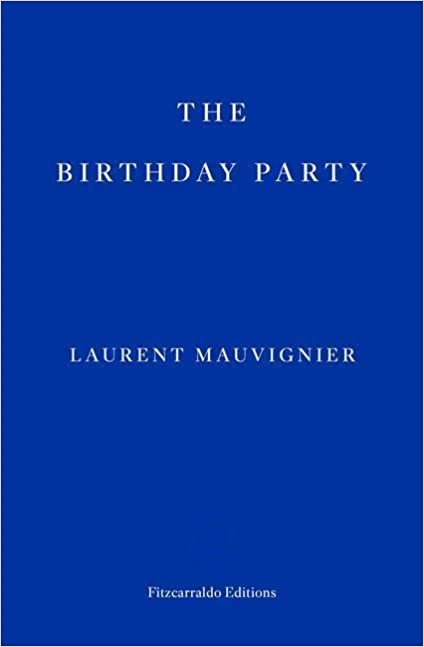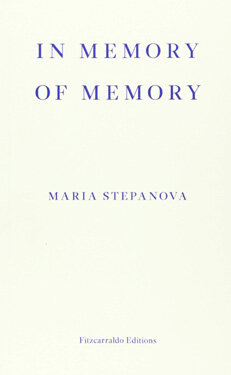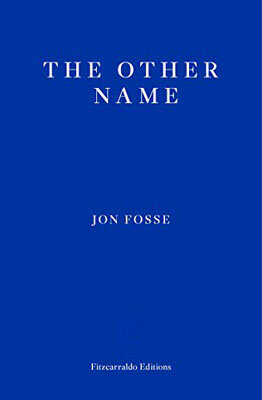I've had mixed experiences reading Tokarczuk's work in the past. I didn't get on with “Flights” but loved “Drive Your Plow Over the Bones of the Dead”. So I was curious to see what I'd make of “The Empusium”, especially just after reading “The Magic Mountain” as the bones of this story heavily inspired Tokarczuk's novel. This follows 24 year-old Mieczysław Wojnicz who is suffering from TB and another initially mysterious condition as he journeys to a “health resort” in the Silesian mountain range. There he encounters a number of highly opinionated men who take him on rambles through the countryside, drink a hallucinogenic alcohol named Schwärmerei and engage in conversations on a range of topics from politics to religion to the nature of reality, but most of these discussions devolve into horrifically misogynistic statements. The narrative follows Wojnicz's increasingly unsettling experiences as rumours of ritual killings in the forest and witches abound alongside persistent unsettling noises around the property. However, we also get frequent memories from Wojnicz's past as he lived under his imposing father (who is also a massive misogynist.) The story leads to a scene of intense crisis and an opportunity for new possibilities for Wojnicz.
The title of the book comes from Empusa or Empousa (who was a shape-shifting female from Greek mythology who seduced and fed on young men) but the name is combined with the word symposium. I enjoyed the chilling atmosphere of this novel where we're almost immediately presented with a body on a dining table! Threats abound from devils, the town's working class, women and even the landscape (according to his friend Thilo.) There's the question of who Wojnicz should really trust – the doctors, the gentlemen residents, terminally-ill Thilo with his cryptic warnings, the local women or the strange noises/voices that surround him. There's some gore especially surrounding food (there's a duck soup scene which is utterly stomach-churning) and the novel considers the cruelty towards/consumption of animals which is strongly reminiscent of Tokarczuk's “Drive Your Plow Over the Bones of the Dead”. One of the most unsettling images are some creepy dolls (tuntschi) which are made from natural material by locals and used for sex before being left in the forest. Though the novel is subtitled as a “horror story” it's not so much about nail-biting terror, but it's fairly effective at creating a persistent eerie sensation.
It gradually becomes clear that the true horror comes from prevailing attitudes and systems of thought concerning a hatred towards women. Not only that but Wojnicz is frequently under pressure to conform to stereotypical notions of masculinity. I grew up in rural Maine where I was forced to spend time amongst groups of men on camping and hunting trips. Though they weren't outwardly misogynistic there was pressure to fit into this high-testosterone atmosphere, rise to physical challenges and submit to men's need to be “right” in whatever argument they were making (whether I agreed with them or not.) So I definitely felt for the pressures Wojnicz experienced among such men.
Interestingly, the narrative switches between a past-tense 3rd person following Wojnicz and a collective first person account in the present from some undefined entities (labelled in the opening cast list of the novel as “Nameless inhabitants of the walls, floors and ceilings”.) I liked how this later narrative voice added to the creepiness of the story as it felt like I was travelling amongst ghosts, spirits, nature or some other unknown entity. It adds to the sense that although misogynistic men control the social order of this location there's a perspective outside of this judging, undermining and wryly commenting on the proceedings. But it was also such a curious way of shifting focus from the larger action to the micro: the chinks between the slate roof tiles, droplets of water, clumps of grass, etc. To me this felt very cinematic like in David Lynch's Blue Velvet where the view of a seemingly idyllic neighbourhood narrows down to creepy undergrowth.
The novel’s story has a superficial relationship to Thomas Mann's “The Magic Mountain” with its hero newly arrived at a sanatorium, plot structure centred around conversations between gentlemen and setting prior to WWI. Tokarczuk has commented that she rereads Mann's novel every few years so it's in some ways a homage and in some ways a corrective or, as she describes, a way of “sparring” with that classic. Having just read Mann's novel, I was immensely relieved that the diatribes from different gentlemen were greatly condensed since there were so many long essayistic chapters in “The Magic Mountain”. Nevertheless, there was a meandering sense which remained in Tokarczuk's story which meant the plot felt a little lethargic in places: another day, another stroll that descends into misogynistic nonsense. However, I enjoyed how Tokarczuk explored issues surrounding Polish nationality/independence and a new take on time/space by considering both a 2 and 4 dimensional reality. I also liked that Tokarczuk reproduced the odd homoerotic imagery of pencils being stroked in adolescence which was also in Mann's novel. There are several other parallels in imagery/ideas between the two books. I certainly don't feel it was necessary to have read “The Magic Mountain” as Tokarczuk's text doesn't play off from that original in the same way that the recent novel “James” worked in parallel to “The Adventures of Huckleberry Finn”, but I'm still glad I read Mann's book because it is its own strange beast.
There's a surprising twist in the story and the final sections of the novel are quite thrilling. These reinforce Tokarczuk's message that reality doesn't exist in simple absolutes but in different perceptions and in-between spaces. Overall I think this was a fascinating and through-provoking read. Though I definitely wouldn't want to harken back to this time of more rudimentary medicine/treatment I did like the idea of champagne being prescribed as a cure. There are certain odd images which will stick with me such as a toad sitting on a pile of potatoes. Though the finale is gripping I felt it played out a little too quickly with the narrative summing up afterwards for all the characters. In this case I kind of preferred how Mann concluded his novel in a way which was haunting and ominous regarding the advent of WWI. The really bracing thing to me was the author's afterward where she states how the misogynistic views expressed by her characters were paraphrased from texts by some of the foremost Western thinkers/writers from the past including Charles Darwin, Sigmund Freud, Shakespeare, Yeats, etc. It shines a light on how the core of our culture is threaded through with misogynistic ideas and thus calls into question our very foundations.

























